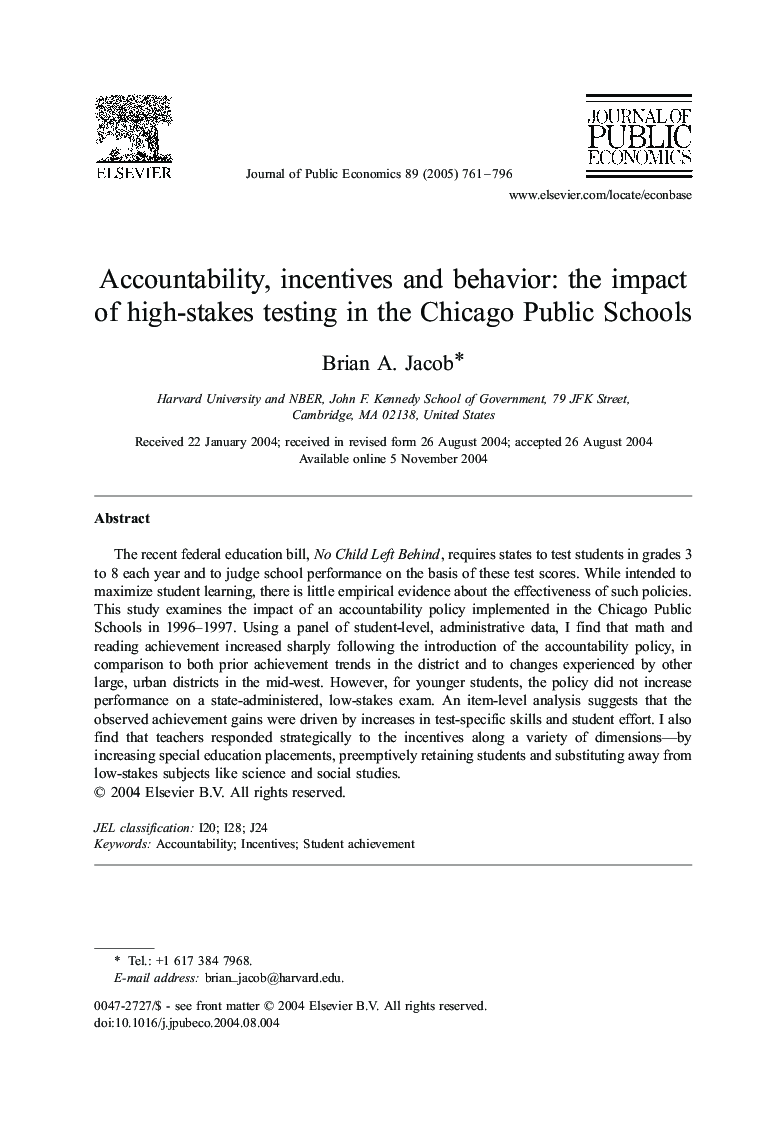| Article ID | Journal | Published Year | Pages | File Type |
|---|---|---|---|---|
| 9726852 | Journal of Public Economics | 2005 | 36 Pages |
Abstract
The recent federal education bill, No Child Left Behind, requires states to test students in grades 3 to 8 each year and to judge school performance on the basis of these test scores. While intended to maximize student learning, there is little empirical evidence about the effectiveness of such policies. This study examines the impact of an accountability policy implemented in the Chicago Public Schools in 1996-1997. Using a panel of student-level, administrative data, I find that math and reading achievement increased sharply following the introduction of the accountability policy, in comparison to both prior achievement trends in the district and to changes experienced by other large, urban districts in the mid-west. However, for younger students, the policy did not increase performance on a state-administered, low-stakes exam. An item-level analysis suggests that the observed achievement gains were driven by increases in test-specific skills and student effort. I also find that teachers responded strategically to the incentives along a variety of dimensions-by increasing special education placements, preemptively retaining students and substituting away from low-stakes subjects like science and social studies.
Related Topics
Social Sciences and Humanities
Economics, Econometrics and Finance
Economics and Econometrics
Authors
Brian A. Jacob,
